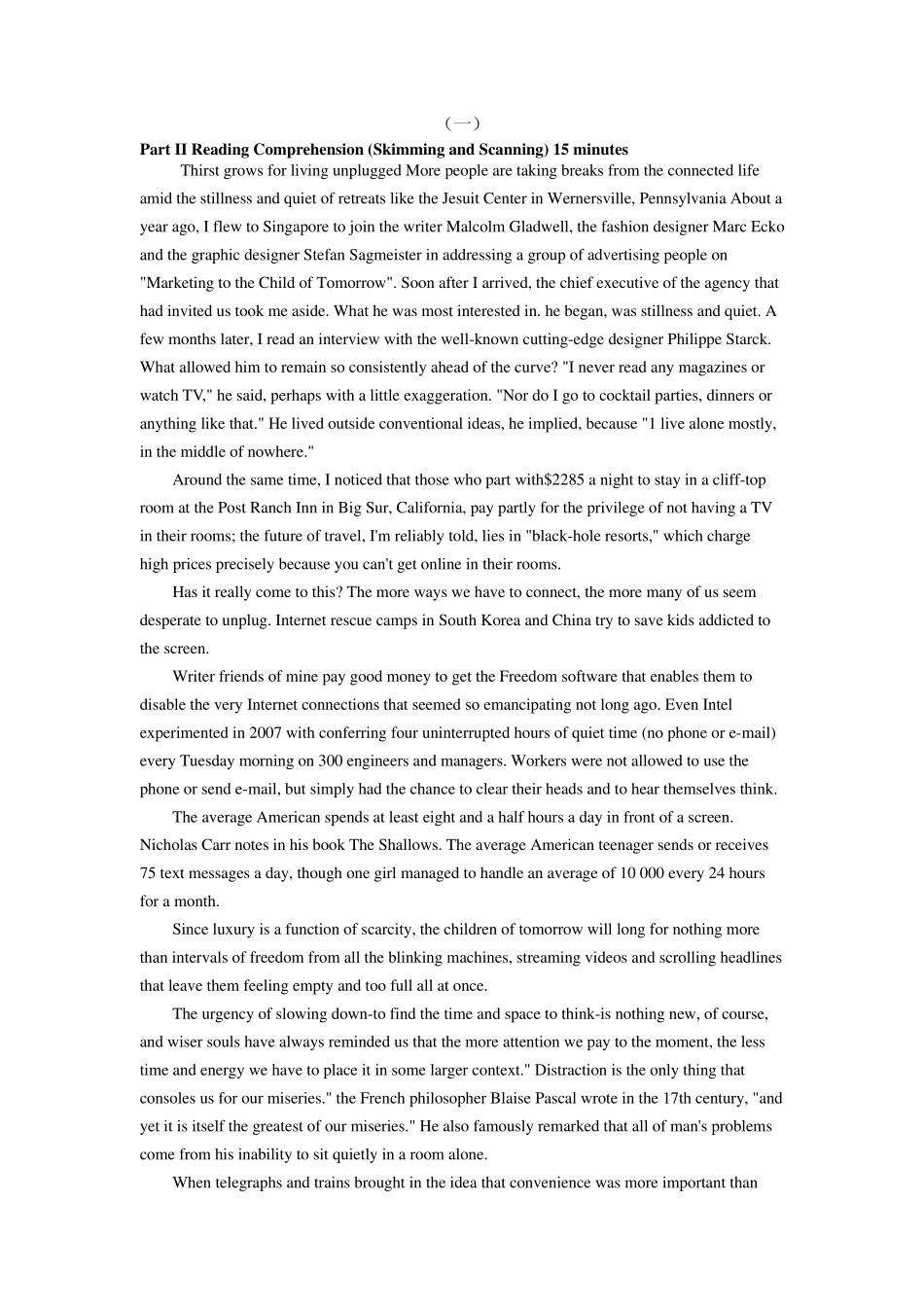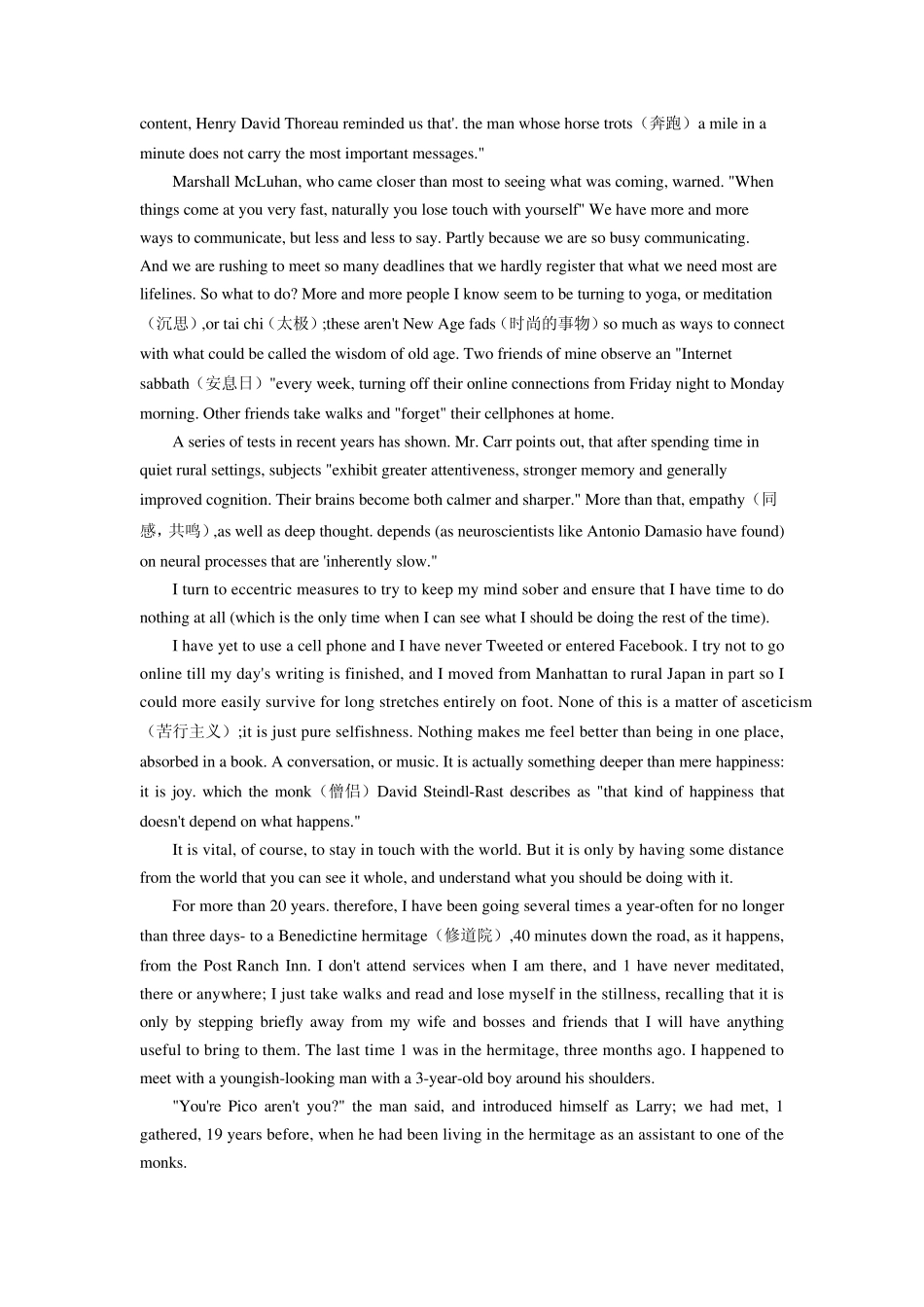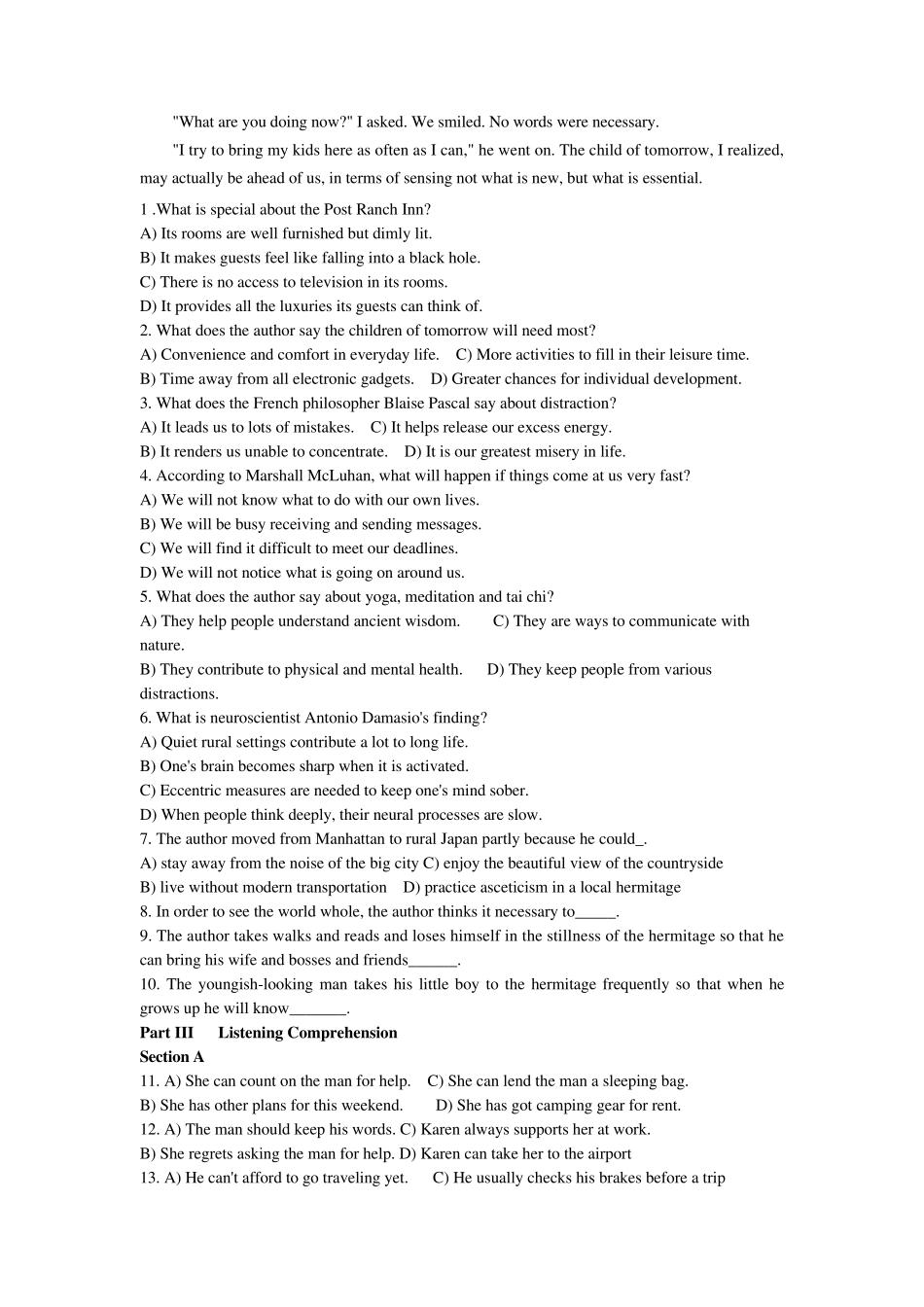(一) Part II Reading Comprehension (Skimming and Scanning) 15 minu tes Thirst grows for living unplugged More people are taking breaks from the connected life amid the stillness and quiet of retreats like the Jesuit Center in Wernersville, Pennsylvania About a year ago, I flew to Singapore to join the writer Malcolm Gladwell, the fashion designer Marc Ecko and the graphic designer Stefan Sagmeister in addressing a group of advertising people on "Marketing to the Child of Tomorrow". Soon after I arrived, the chief executive of the agency that had invited us took me aside. What he was most interested in. he began, was stillness and quiet. A few months later, I read an interview with the well-known cutting-edge designer Philippe Starck. What allowed him to remain so consistently ahead of the curve? "I never read any magazines or watch TV," he said, perhaps with a little exaggeration. "Nor do I go to cocktail parties, dinners or anything like that." He lived outside conventional ideas, he implied, because "1 live alone mostly, in the middle of nowhere." Around the same time, I noticed that those who part with$2285 a night to stay in a cliff-top room at the Post Ranch Inn in Big Sur, California, pay partly for the privilege of not having a TV in their rooms; the future of travel, I'm reliably told, lies in "black-hole resorts," which charge high prices precisely because you can't get online in their rooms. Has it really come to this? The more ways we have to connect, the more many of us seem desperate to unplug. Internet rescue camps in South Korea and China try to save kids addicted to the screen. Writer friends of mine pay good money to get the Freedom software that enables t...


